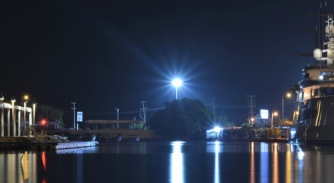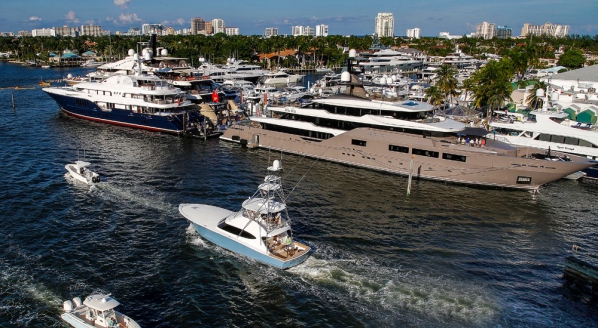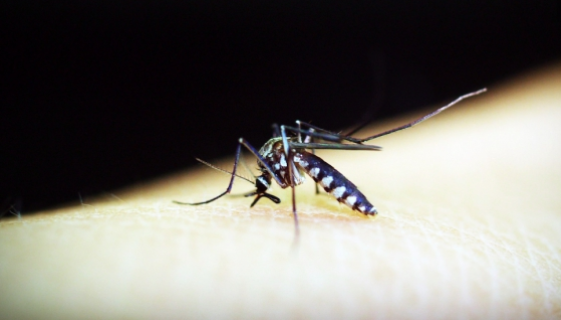An unwelcome comeback
Resurgent tropical diseases may pose a risk to the superyacht sector. Brent Palmer, of MedAire, discusses the rising risk and causes …
The centre for the study of tropical diseases may sound innocuous, but don't let the name fool you. Tropical diseases are bad news; that is why they have entire research institutes and hospitals dedicated to study and treatment. Although most virulent in the true tropics - approximately 23 degrees north or south of the equator - they are much more widespread than the name suggests. And their ranges are getting wider. The factors driving this change are diverse, and the most studied is anthropogenic climate change.
The climate-driven spread of infectious tropical disease is well researched, as is how social factors interact with the environment to exacerbate the impact. The catalyst that has now entered the fray is the knock-on effects from COVID. As superyachts move further afield how their crew and guests interact with the countries that play host needs to be carefully re-examined. As Palmer begins, the evidence is starting to point to an increased set of risk factors:
“There is a concern in the medical and economic community regarding the flow-on effect of COVID 19 and what has been termed neglected tropical diseases. The endemic diseases in the tropics, especially the Caribbean, are at risk of resurging.” States Palmer.
“Talking to some boats in Antigua, they say they haven't seen any anti-infection measures such as mosquito fogging or other measures that would normally be occurring in the background,” continues Palmer, who stresses that these practices are no less vital in the COVID era. Yachts operating in the tropics should be preparing for the knock-on effect, as Palmer estimates: “We expect that a rise in tropical illness will occur within the superyacht sector; it just hasn't happened so far. Most likely, we're going to see the biggest impact in 2022, which is where the biggest risk to yacht crew.”
 Brent Palmer, director of medical instructors & strategic customer relationships at MedAire
Brent Palmer, director of medical instructors & strategic customer relationships at MedAire
Speaking specifically about the mosquito-borne tropical infectious diseases that pose the most relevant threat to superyachts, Palmer surmises: "The mosquito eradication and protective measures are clear examples of the kind of practice that are probably going to be diminished significantly unless they get some economic aid. We can expect Zika to be on the rise as well as Dengue Fever and Chikungunya. These are the main characters we see commonly in the Caribbean, along with, most likely, Yellow Fever.”
With the weight of research on the spread of tropical decreases due to climate change already in the public sphere, there has been some recognition from intergovernmental organisations of the risk, as Palmer explains: "The World Bank and a few others have now started bolstering or putting in money to try and keep these programmers afloat to prevent what we are suspecting, which will be an increasing rise in these tropical illnesses. There has been a slow-burning epidemic moving around Central and South America, and that again comes from the same type of mosquito. And as the risk of a Yellow Fever outbreak increases, that can lead to a more serious risk of mortality."
The environmental factors contributing to the situation are compounding many public health issues, with Palmer pointing to the increased frequency of hurricanes as a clear example: “For the last three or so years, there has been much bigger, more frequent hurricanes hitting the islands of the Caribbean and the tropics in general. These may be manageable individually, but it puts pressure on the system. Now that we are into the second year of COVID and the medical resources are stretched due to testing, infections and hospitalisations, the risk is growing."
"Something that we don't take into account is the burnout of medical staff who have now been dealing with all of this," explains Palmer, who continues; "and they have also been getting sick and dying in some cases, as well as the normal attrition rate of staff retiring and leaving the environment. Schools have been closed; universities have closed, and it is an unprecedented situation for health care in many countries in the tropics."
“From the yachts point of view, it's going to be very important this year and early 2022 to start planning for next cruising season and to take into account that the medical infrastructure is going to be threadbare.” States Palmer
One of the positive implications that Palmer also stresses is that the medical systems and equipment rolled out to treat COVID can also be coopted easily to diagnose other diseases, but that cannot be relied upon at this stage. “The expectation is that you're going to start seeing more and more of these breakthrough infections that are popping up. The good news is that we've got a very robust system in place to try and track those and prevent them because that's exactly what happened.”
MedAire suggests a full evaluation of the itinerary before any charter or season that considers the risk associated with specific destinations. As Palmer stresses as we spoke, the situation on the ground is changing rapidly. Not only are the climatic boundaries that contain infectious tropical diseases expanding, but the baseline of public health in many regions of the world has shifted also. The expectation of assistance in host countries cannot be taken for granted, and superyachts that operate in the tropics should be fully aware of the potential for increased risk and be fully prepared to manage it. MedAire has a series containing whitepapers analysing the health of superyachts, guests and crew, a link to which can be found here.
Profile links
NEW: Sign up for SuperyachtNewsweek!
Get the latest weekly news, in-depth reports, intelligence, and strategic insights, delivered directly from The Superyacht Group's editors and market analysts.
Stay at the forefront of the superyacht industry with SuperyachtNewsweek
Click here to become part of The Superyacht Group community, and join us in our mission to make this industry accessible to all, and prosperous for the long-term. We are offering access to the superyacht industry’s most comprehensive and longstanding archive of business-critical information, as well as a comprehensive, real-time superyacht fleet database, for just £10 per month, because we are One Industry with One Mission. Sign up here.
Related news

Quay Crew and MHSS publish stark crew mental health report
SuperyachtNews speaks exclusively with Charles Watkins, Clinical Psychologist at MHSS, and Tim Clarke, director at Quay Crew
Crew
-copy.png)
Managing uncertainty
As the world begins to open up Pantaenius consider how charter and yacht operations have been affected
Business

“Our chief officer tested positive for Covid”
A superyacht captain discusses the trials and tribulations that followed after a crewmember tested positive for Covid-19 in Greece
Crew

Related news
Managing uncertainty
4 years ago
“Our chief officer tested positive for Covid”
4 years ago
A tale of two cities
5 years ago
NEW: Sign up for
SuperyachtNewsweek!
Get the latest weekly news, in-depth reports, intelligence, and strategic insights, delivered directly from The Superyacht Group's editors and market analysts.
Stay at the forefront of the superyacht industry with SuperyachtNewsweek




